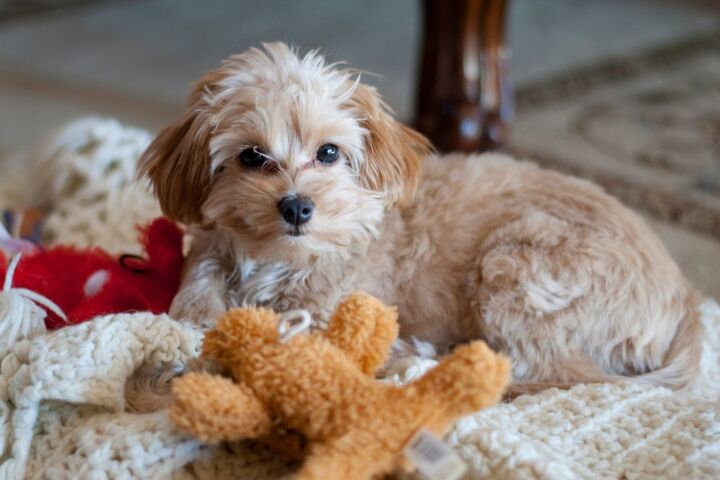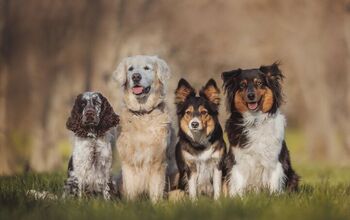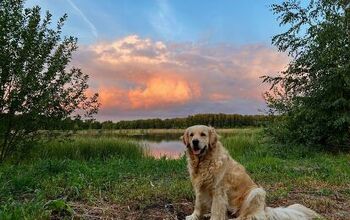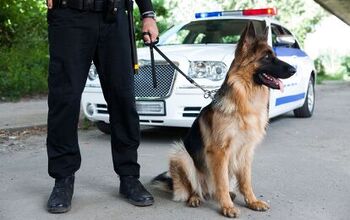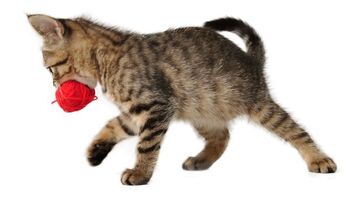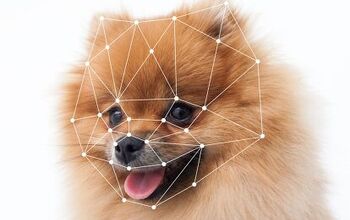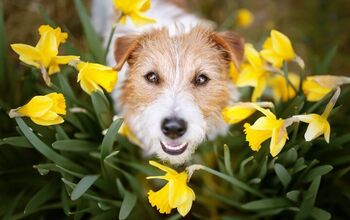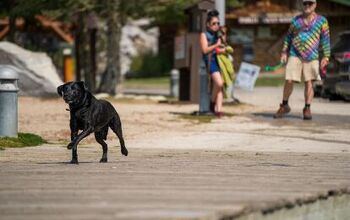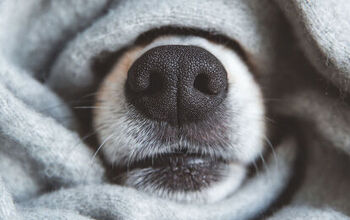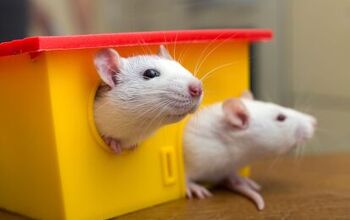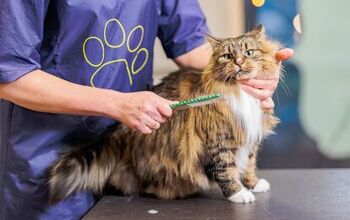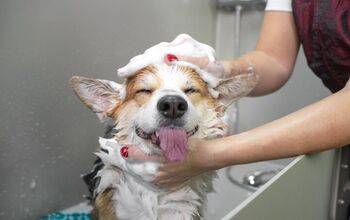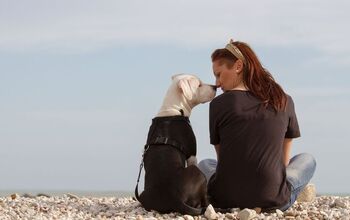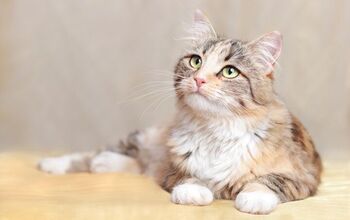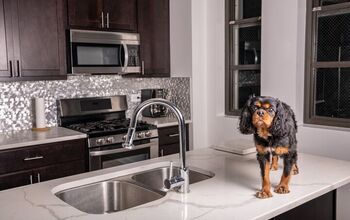Malchi

Malchi Basics
Feisty, small, and cute, the Malchi will win you over with their friendly and fun personality. This fairly recent designer dog breed is a result of crossbreeding a Chihuahua to a Maltese, in an effort to create a small breed dog that exhibits the best traits of both parental breeds. These dogs usually have a soft and fluffy coat, petite stature, and a heart too big for their tiny bodies. Somewhat sassy but still quite affectionate, the Malchi is the perfect blend of sugar and spice – there’s never a dull day with one of these crossbreeds by your side.
When socialized on time, Malchis can be friendly and adaptable, but most prefer being the only pet in the house that’s being pampered and spoiled rotten, so they make fantastic pets for seniors, singles, or couples without small children in the household.
Somewhat sassy but still quite affectionate, the Malchi is the perfect blend of sugar and spice – there’s never a dull day with one of these crossbreeds by your side.
Malchi is a fairly new designer dog breed, but despite their recent rise in popularity, this breed doesn’t have a well-documented history. In fact, like most designer dog breeds, Malchi’s origins are a bit murky and mysterious! There have probably been a few accidental pairings of Chihuahuas and Maltese dogs through history but as for the moment when breeders started crossing these two purebreds intentionally, in an effort to create a wholly new type of dog – wasn’t recorded. Of course, we can still guesstimate the period in which the breed was probably created. The craze for designer dog breeds hit its peak in the ‘00s, so it’s safe to assume that’s when the Malchi was first created.
Since Malchi is technically a crossbreed and not a purebred dog, the breed is not recognized by the American Kennel Club (AKC) or any other major international canine organization, which means that there are no official pedigree standards to adhere to. However, breeders are striving to produce litters that have the best traits of both breeds and have somewhat similar looks whenever possible.
Even though the Malchi is a fairly new breed on the block, its parents have long histories as cherished pets and companions. The Chihuahua hails from Mexico and has been recognized by the AKC as early as 1904, although there are speculations that the breed is a few centuries old, with colonial records mentioning dogs of similar appearance as far back as the 16th century. Similarly, the Maltese breed originated in the Mediterranean, with references to a Maltese-type breed found in Ancient Roman and Greek scriptures (early as 370 BC), as a lapdog favored by children. Even so, the Maltese breed was officially recognized as a breed by the AKC in 1888.
With parents of such lineage, it’s easy to see that the Machli is headed towards some great things, too – after all, their crossbreed offspring display all the traits we love about the parents, all bundled up into the cute, cuddly package that is the Malchi.
Malchi is a small breed dog with moderate activity levels and should be fed a diet that is tailored to their needs. Most owners opt for high-quality dry food for dogs that offers complete and balanced nutrition and can be easily found in formulas that suit their pet’s unique needs. Kibble should be made with quality, natural ingredients, with real meat as the first ingredient on the list.
In addition to your pet’s size and activity level, the food should be formulated to accommodate their age – puppy, adult, or senior. It’s important to note a few things about a Malchi’s diet, though. Thanks to their small size, these dogs can be prone to obesity, so it’s crucial not to free-feed them or offer one too many treats in between meals. Malchis gain weight really fast and it can really affect their health and quality of life, so it’s essential to maintain a healthy weight with the right diet, careful portioning, and daily exercise.
Similarly, owing to the Maltese parentage, Malchis can be picky eaters and/or have sensitive digestive systems and food allergies. If you notice that your pet has any GI upset after meals such as bloating, gassiness, vomiting, or diarrhea, that might be a sign that a certain ingredient in the food is triggering their sensitivities. Try grain-free or dog food for allergies, which is made without any common allergens, relying instead on superfoods and exotic protein to meet your pet’s dietary needs without using potentially triggering ingredients.
The temperament of Malchis is more suited to seniors, singles, and couples with older children or no kids in their family.
Malchis are intelligent dogs that can be fast learners, but some of them can also have a stubborn streak that will make training a bit more difficult. The key is to be assertive (without being harsh) and to be consistent with training until successful. Keep the training sessions short and engaging to avoid boredom, as it can prompt your Malchi into ignoring your efforts and instead go looking for a more interesting activity to fill their time with. A good strategy is to rely on positive reinforcement methods to teach your pet basic manners: using treats and praise as motivation for a job well done is certain to get you where you want to go with your Malchi.
Early training and socialization are especially important for Malchis, as this will not only make sure your pet is well-behaved and easy-going inside and outside the home, but it will also prevent some less-than-ideal traits and habits these designer dogs can be prone to. If you fail to train your Malchi, they can become yappy and snappy, especially around other pets and strangers. They can display behaviors such as resource guarding or small dog syndrome, as well, and no owner wants that. To remedy these issues, start training young and make sure you expose your Malchi to other animals, children, and strangers so they could feel at ease at their presence instead of being moody and even aggressive towards them.
Both the Chihuahua and the Maltese are tiny lapdogs, and their offspring are the same. The expected weight for an adult Malchi varies between 5 and 12 pounds, making this hybrid a toy breed dog. Not surprisingly, Malchis make great apartment dwellers and don’t need a lot of space to thrive.
Combining the spunky, sassy Chihuahua and the sweet, affectionate Maltese into one dog created some interesting results – Malchis are utterly charming, with the right dose of spirit and zest but true cuddle bugs, as well. These pooches create strong bonds with their owners and will always be by their humans’ side, wanting to be included in every activity and happening in the household. After all, they deem themselves the star of any – and every– event! Machis are lap dogs through and through, so they’ll love curling up in your lap while you watch Netflix and will appreciate cuddles any time of the day.
Of course, their big personality can sometimes get to their head – which is why early training and socialization are crucial for this breed. Malchis can easily become territorial and aggressive over their belongings, and try to boss everyone around, so it’s best if you remedy that early on. Small dog syndrome is no fun! This is one of the reasons why Malchis are not the ideal pets for children, as they can get snappy if mishandled or pestered by kiddos (which, in all fairness, can happen really easily). The temperament of Malchis is more suited to seniors, singles, and couples with older children or no kids in their family – that way, the Malchi can be the center of everyone’s attention!
As a mix between a Chihuahua and a Maltese dog, the Malchi can be affected by the same diseases as the parental breeds. This includes patellar luxation, patent ductus arteriosus (PDA), hip dysplasia, eye issues, obesity, and allergies. Allergies and stomach sensitivities are much more common in dogs with lighter coats, so if your Malchi is white or cream, be sure to monitor their diet carefully so you can spot signs of GI upset or food allergies early on.
If you get your Malchi puppy from a reputable breeder that screens for genetic issues, you will significantly reduce the chances of a congenital illness as well as any diseases that can be the result of neglect backyard breeders put their puppies through – such as infections and parasitic infestations, to name a few. Of course, meeting your pet’s needs such as a healthy diet and regular exercise, as well as taking them for regular vet checkups, can go a long way for promoting better health for your Malchi.
Based on the lifespan of its parental breeds, it’s safe to estimate that Malchi’s own lifespan is between 12 and 18 years.
Malchis are low to moderately active dogs – they’re not exactly couch potatoes but they won’t be running laps around the home, either. When it comes to exercise, they’re quite low maintenance, but they’ll still need regular activity to maintain a healthy weight and a healthy body. Ideally, 30 to 60 minutes of walks and playtime should keep your Malchi thriving.
Malchis can easily get bored which can spark mischief and get them into trouble – or a destructive mood. This can be prevented if you keep them engaged and occupied with puzzles or interactive enrichment toys. Exercising their mind is as important as exercising their bodies!
Malchis are low to moderately active dogs – they’re not exactly couch potatoes but they won’t be running laps around the home, either.
The Malchi is recognized by various clubs and organizations dedicated to designer dog breeds, including American Canine Hybrid Club (ACHC), Designer Breed Registry (DBR), Designer Dogs Kennel Club (DDKC), Dog Registry of America, Inc. (DRA), and International Designer Canine Registry (IDCR).
As the Chihuahua can have both a long and a short coat, it can affect Malchi’s coat, as well. If the combination of parents is a Maltese and a long-haired Chihuahua, their offspring will certainly have long, flowy coats. With the short-haired Chihuahua, there’s more room for variety: some Malchis will have a shorter fur, others longer. In either scenario, however, Malchi’s will have a soft, light to moderate shedding coat that’s not too high maintenance. Regular brushing will suffice to keep it mat and tangle-free, with occasional baths to keep your pet clean and their fur spotless.
When it comes to coat colors, most Malchis are either cream or white, but fawn, tan, and black are also a possibility if the crossbreed favors the Chihuahua parent more.
Most Malhci litters have 2 to 4 puppies, the tiniest bundles of absolute cuteness that can all look different depending on which of the parents they take up after. Even as adults, Malchis are tiny and fragile, so it doesn’t surprise that they are very sensitive as puppies and should be handled with utmost care to avoid accidental injury. Don’t leave your puppy unattended with small children or take them to big crowds as it can cause more harm than good.
As Malchis have a stubborn streak and can develop some behavioral issues later in life, it’s important to start training and socialization as soon as possible. They’ll be ready to start with the basics around 8 weeks of age but wait for 14 to 16 weeks before you start with the more complex stuff, such as potty training.
Photo credit: Abby Blumhardt/Shutterstock

A proud mama to seven dogs and ten cats, Angela spends her days writing for her fellow pet parents and pampering her furballs, all of whom are rescues. When she's not gushing over her adorable cats or playing with her dogs, she can be found curled up with a good fantasy book.
More by Angela Vuckovic



